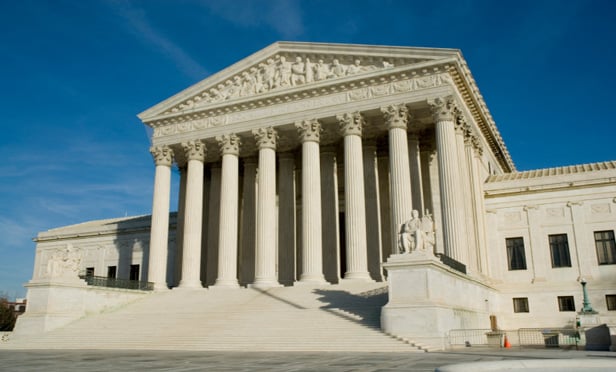 US Supreme Court
US Supreme Court
Cornell University employees will get another shot to challenge their employer’s retirement plan’s excessive fees. Today, the Supreme Court, in a unanimous decision, handed retirement plan participants a major win, making it easier to sue over mismanaged plans under ERISA.
The decision resolves a split among circuit courts over ERISA standards – and ultimately dictates how easy or difficult it is for workers to argue that retirement plans violate ERISA rules.
Recommended For You
The Court revived the case against Cornell University, Cunningham et al. v. Cornell University, et al., ruling that workers don’t need to disprove legal exemptions up front when challenging service provider deals, according to Jerry Schlichter, attorney at Schlichter Bogard, for the plaintiffs. Schlicter is a pioneer in legal action against 401(k) and 403(b) plan sponsors on behalf of retirees and savers.
The plaintiffs allege their retirement plans were saddled with excessive fees. The decision resolves a circuit split.
In January, the Supreme Court heard oral arguments over the University’s 403(b) retirement plan lawsuit, which gave the justices a chance to clarify what employees challenging recordkeeping fees must allege to advance their claims.
Today's decision resolves a split among circuit courts over ERISA standards – and ultimately will dictate how easy or difficult it is for workers to argue that retirement plans violate ERISA rules.
“The Supreme Court agreed to hear the case to resolve a conflict among the federal courts of appeals regarding the pleading standard for an ERISA 'prohibited transaction' claim," said Schlichter.
The court examined conflicting lower court rulings to decide if plaintiffs must demonstrate more than just the occurrence of a “prohibited transaction” to overcome a motion to dismiss.
The justices were asked to resolve a circuit split over ERISA’s prohibited transaction rules, which put guardrails on arrangements between retirement plans and participants. A Cornell loss could act as a green light for workers seeking hefty settlements, while a victory could frustrate genuine attempts to rectify mismanagement, according to experts.
Today, the court said that Cornell raised “serious concerns” when it said this ruling would spur meritless litigation and impose financial burdens on retirement plan sponsors.
The Cornell lawsuit was originally filed in 2016 by law firm Schlichter Bogard, which has filed litigation against many universities’ retirement plans. The lawsuit claims that Cornell and its fiduciaries breached their ERISA duties by:
- Offering certain investment products (CREF Stock Account, Money Market Account, TIAA Traditional Annuity) that were not in the best interest of participants.
- Failing to effectively monitor and control recordkeeping fees.
- Failing to effectively monitor and offer appropriate investment options.
This lawsuit was one of more than 20 lawsuits that year, accusing colleges and universities of violating ERISA by failing to adequately monitor retirement plans, drop underperforming investments or limit fees, and not the first to reach the Supreme Court. Duke, Columbia, the University of Southern California and Washington University in St. Louis have paid as much as $13 million to settle ERISA cases in recent years, while denying wrongdoing.
Related: Supreme Court hears Cornell’s 403(b) excessive fees case: Did it open the floodgates for more suits?
Next steps for this case? “A [Supreme Court] decision could come at any time before the term ends in June," said Schlichter.
© 2025 ALM Global, LLC, All Rights Reserved. Request academic re-use from www.copyright.com. All other uses, submit a request to [email protected]. For more information visit Asset & Logo Licensing.








